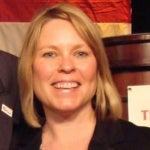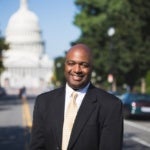All Together Now: Advancing 2Gen Strategies in Rural America
Watch the video here
Follow along in the presentation with these documents:
Carson_Presentation for Aspen 2G ARO Event
Crisis_To_Thriving_Scales_long with GCCAC
How can local organizations, businesses and parents partner to help struggling and striving rural families get ahead – and stay there? Over the past decade, innovative “two-generation (2Gen)” or “whole family” approaches have emerged as a promising answer. The 2Gen approach aims to intentionally coordinate and align often-isolated programs for kids and their parents (or grandparents) in ways that help accelerate progress on three fronts: (1) parents with family-supporting jobs; (2) children meeting developmental milestones; and (3) families able to fully support and promote their children’s development.
Our February 28 America’s Rural Opportunity session focused on the how-to’s of designing and supporting effective 2Gen efforts in rural places. We featured practitioner stories from two pathbreaking rural 2Gen efforts – one from Appalachian Western Maryland and another from Downeast Maine. We talked about how policy can advance (or hinder) 2Gen, shared relevant data on the situation of rural families, and detailed ideas for what philanthropy and business and economic development leaders can do to help advance 2Gen efforts.
The Innovators

Charley Martin-Berry
Executive Director, Community Caring Collaborative in East Machias, Maine
The Community Caring Collaborative helped launch Family Futures Downeast (FFD), successfully assembling a multi-level collaboration of local, state and tribal partners in America’s easternmost county to create access to education and employment opportunities for parents with young children. FFD combines post-secondary education and workforce development with high-quality early education for FFD children. It offers services and supports that participants need to succeed, including transportation and technology, a personally relevant and stimulating curriculum, and strong emotional, social, and career supports. FFD has significantly increased the number of low-income parents who can enroll in college in Washington County and who leverage education as a pathway to self-sufficiency – removing the economic, cultural and logistical barriers that make going to college difficult for many young parents.
 Duane Yoder
Duane Yoder
President, Garrett County Community Action Committee in Oakland, Maryland
Garrett County Community Action Committee (GCCAC) has emerged a nationwide leader in implementing a whole-organization 2Gen strategy to help low-income families move from crisis to thriving – which has inspired both rural or urban sites across the country. GCCAC’s “special sauce” has many ingredients – making the move from “case-managing clients” to “coaching families,” forming collaborative relationships with critical new partners to provide needed family services, turning agency culture around so that there is no wrong door for families to walk in, and blending and braiding funding streams to support 2Gen. GCCAC has also tackled the deep challenge of measuring “whole-family” outcomes, including developing proprietary software (empowOR) specially designed to track key parent and children progress measures together – and thus assess whole-family impact – over time.
 Jeannie Chaffin
Jeannie Chaffin
2Gen Consultant from Manassas, Virginia
Jeannie is an expert in designing policy and implementing strategies to improve family livelihoods on the ground in community. As director of the Office of Community Services (OCS) in the Administration for Children and Families, U.S. Department of Health and Human Services, she helped lead the 2017-19 national Rural IMPACT 2Gen Demonstration – in which 10 rural sites across the country launched or strengthened local 2Gen efforts. Earlier, after serving as Missouri’s Community Services Block Grant Administrator, she was Senior Program and Policy Specialist at the National Association for State Community Services Programs, providing policy development and technical assistance to state CSBG administrators. Jeannie is currently advising 2Gen efforts nationwide, including the National Community Action Partnership’s whole-family approach Learning Communities, as well as several state and regional cohorts that are devising
Data Presentation

Jess Carson
Research Assistant Professor with the Vulnerable Families Research Program at the Carsey School of Public Policy
Jess Carson is a Research Assistant Professor with the Vulnerable Families Research Program at the Carsey School of Public Policy. Since joining Carsey in 2010, she has studied poverty, work, and the social safety net, including policies and programs that support low-income workers like affordable health insurance, food assistance programs, and quality child care. Her other interests include health within and across families, and the intersection of health and employment across the income spectrum. Jess is also working on a long-term project around the challenges and opportunities facing people who live and work in rural communities, with the goal of highlighting the strategies that work best to support them. She has a Ph.D. in sociology from the University of New Hampshire.
Moderator
 René Bryce-Laporte
René Bryce-Laporte
Principal, Bryce Laporte Information & Consulting
René is an independent consultant based in Washington, DC, with a particular focus on family asset-building and workforce issues. For over two decades, he has worked to help underserved people and communities find social and economic opportunity, serving as a convener, facilitator, researcher, writer and director of multi-site programs. He has worked extensively in both rural and urban and communities. Prior to launching his consulting practice, René served on staff of the Aspen Institute, Prosperity Now (formerly CFED), the Banking Department of the state of Pennsylvania, and RESULTS, Inc. He currently serves on the board of the Campaign for Youth Justice. He is a graduate of Columbia University and the UCLA School of Law.